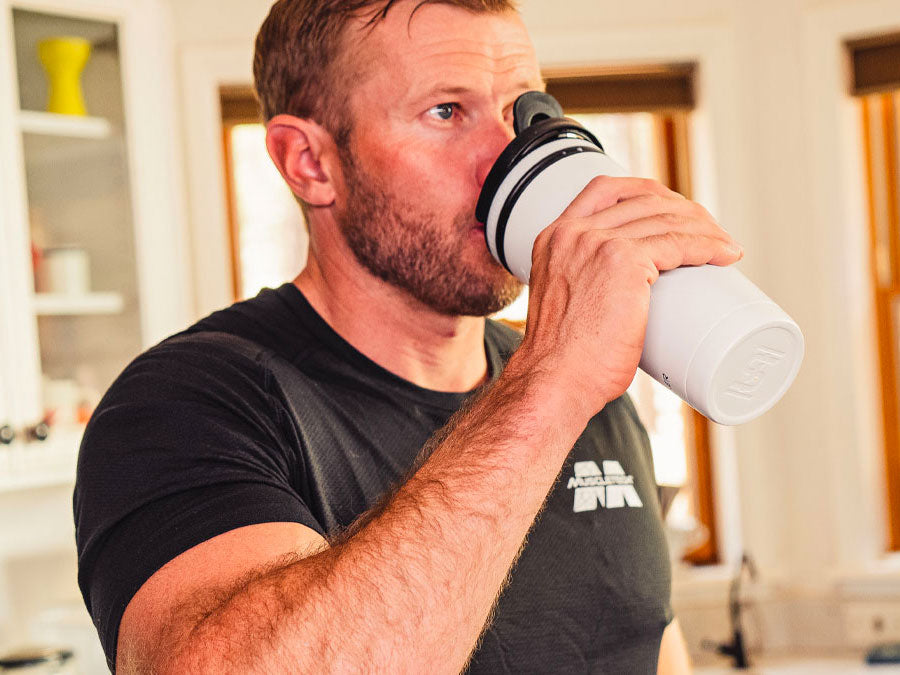Foremost, sleep is essential for repairing wear-and-tear after exercise, and just as athletes have higher dietary needs for protein and calories to fuel hard training, getting a full 8 hours of sleep is essential for peak performance. And, as a bonus, there’s a growing scientific consensus that good sleep protects us against heart disease, diabetes, and even obesity.
However, modern lifestyles are not conducive to perfect sleep. Constant screen stimulus, travel, and even anxiety and stress have cut into to sleep quality. Athletes that are training hard also have additional sleep disturbances in part related to higher nighttime epinephrine (adrenaline) and norepinephrine concentrations.
To counter this, there are lots of tips and tricks that are well covered: turning off the TV early, avoiding caffeine, exercise and other stimulants late in the day, and making your bedroom dark and cool. Then there are supplements that can not only improve your quality of sleep, but can also help you recover faster from training by helping control cortisol and stress levels. With faster, more complete recovery, you can exercise more often and get results faster. Remember – sleep is just as important for optimal performance as training and proper nutrition!
Also Read: The Ultimate Push Pull Legs Routine
Here are 4 must-haves for your sleep routine:
1.Magnesium
Magnesium is important for athletes because not only does help with sleep quality, but it’s also a vital mineral for muscle function, insulin sensitivity and protein synthesis. It’s important to note that exercise increases losses of magnesium through sweat and urine which must be made up through diet and supplementation.
From a sleep perspective, magnesium deficiencies can disrupt nerve signaling and alter levels of sleep-inducing hormones such as melatonin (more on melatonin below).
Save on Supplements to Increase Strength
Moderate dosing ranges of magnesium for adults usually fall between 310 – 420 mg per day. Some of the best dietary sources of magnesium include green leafy vegetables, legumes, seeds, and whole grains. Even so, many people still have magnesium deficiency due to low dietary intake and consumption of over-processed foods and as such, covering off your daily magnesium needs with a solid magnesium supplement is key.
Also Read: How to Prepare for a Marathon?
2.GABA – Gamma-Aminobutyric acid
GABA is an amino acid that is released by the brain at the end of a day which naturally promotes relaxation. It functions as a neurotransmitter – enabling communication among your brain cells. That means that it’s a chemical that binds to nerve cell receptors and hinders their ability to receive, create or send messages to other nerve cells/neurons.
In GABA’s case, it counteracts the excitatory neurotransmitters and reduces the activity of neurons. The result includes increased relaxation, reduced stress and a boost to sleep.[1]
GABA is ideal candidate for supplementation, as the only foods that contain it fermented ones, like miso, kimchi, and tempeh. 100mg is a solid dose.
Also Read: The Ultimate Guide to Trap Workouts
3.Melatonin
Natural sleep patterns are determined by light exposure. This natural cycle elevates cortisol in the morning to deliver energy, mental focus and readiness for daily stressors. Scientists call this the cortisol awakening response (CAR).
As the day progresses, this catabolic hormone levels off and our melatonin levels increase. This is key because high levels of cortisol during the day can impede muscle growth and recovery from training and hinder your physique goals. Cortisol is considered a catabolic hormone, meaning it stimulates the breakdown of muscle to increase the amount of energy available to our bodies in times of need.
Melatonin helps to regulate our internal clock and regulates night and day cycles or sleep-wake cycles. Our bodies make it naturally in the pineal gland at the base of the brain and it’s production is triggered by darkness. As light entering our retina begins to decrease, this gland starts releasing melatonin into the brain. With rising levels of levels of melatonin, levels of cortisol fall. In fact, melatonin is the first step in a series of metabolic reactions that lead to the production of many important hormones.
Modern living is not kind to melatonin, however. During the day, melatonin is inhibited by light. In the evening coffee, late-night exercise and lights from phones or TVs in your bedroom can delay or even blunt melatonin release.
Supplements featuring melatonin can help. A typical dose of melatonin is between 1 mg and 5 mg taking at least 30-45 minutes before bedtime.
Also Read: What Does Post Workout Mean?
4.Ashwagandha (Withania somnifera)
Perhaps the dark horse amongst sleep supplements, Ashwagandha’s sleep support potential has only recently come to the forefront, however this powerful herb is prominent in Ayurvedic medicine with a history of use dates back to 6000 BC.
It’s made from the roots and leaves of the Indian Withania somnifera plant, and this adaptogen helps our bodies adapt to certain situations – including the ability to reduce stress and anxiety through the mediation of cortisol.
Also Read: How to Train Like an Athlete?
Yes, the stress hormone we talked about above plays a huge role in sleep. Normally, sleep exerts an inhibitory effect on cortisol production during the night due to increased melatonin. However, an ill-timed, stress induced chronic influx of cortisol circulating in your body is not good for natural sleep patterns. In addition, sleep loss also intensifies your body’s cortisol concentration and not meeting your sleep needs can lead to elevated daytime levels of the stress hormone. Ashwagandha can reduce cortisol when cortisol is increased due to stress, and it can do so to a relatively significant degree. 125mg of Sensoril® Ashwagandha is the clinically researched dose.
In a double-blind, placebo-controlled human study published in the Journal of the American Nutraceutical Association, researchers gave 19 subjects 125mg of Sensoril®Ashwagandha (Withania somnifera) each day. After two months, researchers found that cortisol levels had significantly decreased.
If you’re like most Americans, there’s a good chance you’re not sleeping enough, or the quality of your sleep also leaves a lot to be desired. The 4 supplements above combined with healthy routines and stress management can change that and make a huge difference in your daily life and performance on the field, court or in the gym.
[1] https://pubmed.ncbi.nlm.nih.gov/16971751/
Visit our Shop to Buy the Best Body Building Supplements
Read Our Top Read Content:








